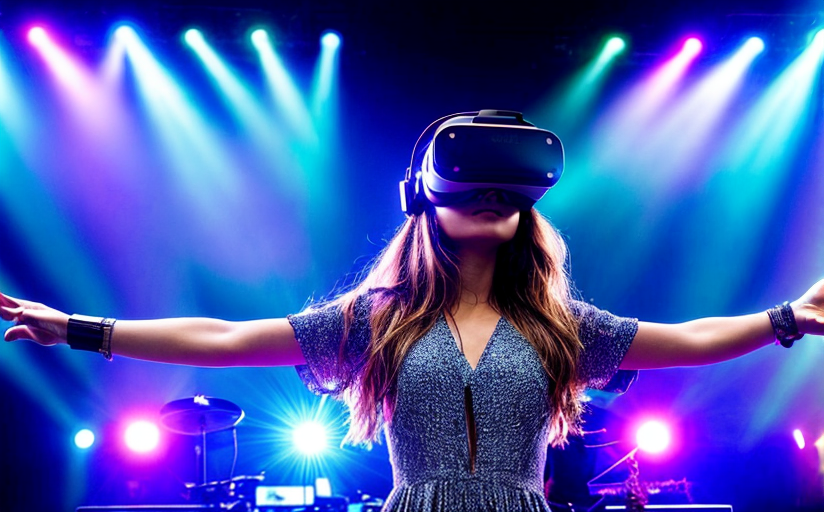The Immersive Universe of Virtual Reality Concerts
The world of technology, particularly Virtual Reality (VR), is radically transforming various industries, including the music industry. VR is - and will continue to - dramatically reshape the way audiences experience music and performative arts.
The Transformation
From the discovery of vinyl records to the development of online streaming services, the music industry has always been at the forefront of technological advances. Today, with the emergence of Virtual Reality systems such as Oculus Rift, HTC Vive and PlayStation VR, the industry is witnessing yet another radical shift.
Companies like MelodyVR and Wave are already creating performances that offer immersive experiences to spectators worldwide regardless of their physical location. For instance, in 2020, American artist Billie Eilish held a virtual concert with millions of viewers from around the world using VR technology.
Gradual Acceptance and Implication in the Music Industry
Virtual Reality currently stands at the intersection of technology and art. While initially, there may have been some reluctance, VR is gradually being accepted within the music industry.
New, unique experiences and an explosion of digital creativity can be seen as some of the main factors for this acceptance. Artists and their teams are realizing the potential of VR as a medium to connect, engage, and provide an extraordinary experience to their fans.
Benefits for Artists and Viewers
Virtual Reality concerts help to overcome geographical constraints by providing a platform where artists can reach audiences worldwide. Furthermore, VR concerts also allow artists to create imaginative, interactive, and visually stunning environments that simply cannot be replicated in real-world performances.
For audiences, VR provides an immersive and communal experience. It allows them to engage with the music and the artist in a deeply personal and accessible way - aspects that were previously limited to physical concerts.
Potential Consequences and Future Developments
While VR concerts provide numerous advantages, they also pose questions about the future of traditional live performances. Will this digital experience replace real-world concerts, or will it only supplement the existing live music scene?
Even as we delve into these questions, technology innovators are developing newer tools like Augmented Reality (AR) and Mixed Reality (MR). These advancements promise even more immersive and interactive experiences that may further push the boundaries of virtual experiences and live music.
Emotional and Communal Aspects
In spite of the rise in VR concerts, the debate on whether technology can replace the raw emotion and communal spirit of a live concert remains. While VR can realistically replicate the sound and visual aspects of a live concert, the tangible concert atmosphere remains lacking. However, with constant advancements in technology, it wouldn’t be surprising to see this barrier being overcome in the near future.


















Comments
Leave a Comment